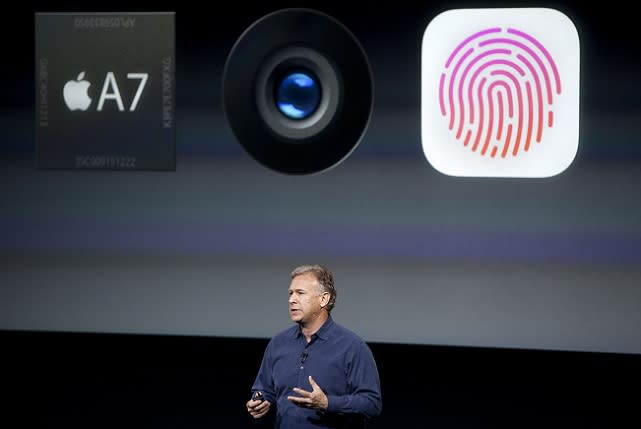The foolhardy notion that Apple is "too rooted to hardware" and that hardware is "becoming a commodity."

Venture Capitalist Fred Wilson recently spoke at the TC Disrupt conference in NYC where the outspoken investor had some interesting things to say about Apple.
Not one to mince words, Wilson boldly proclaimed that Apple by 2020 will no longer be one of the top three tech companies as measured by market cap. Instead, the top there spots will be occupied by Google, Facebook, and another company that we haven't yet heard of.
TechCrunch recapped his line of reasoning as follows:
Why? Apple, he believes, is "too rooted to hardware," with not enough tied into the cloud, and that will make it too much of a challenge for it to evolve going forward.
"I think hardware is increasingly becoming a commodity," he said. "Their stuff in the cloud is largely not good. I don't think they think about data and the cloud."
Twitter, meanwhile, he thinks will be "four, five, six, seven... but I'm not sure it will be number-two [or three]."
Well, apparently the "Apple is trending downwards" meme is as alive as ever.
Now to be sure, anticipating which companies might be market cap leaders six years into the future is a fool's errand. Nonetheless, the reasoning Wilson proffers is nothing more than the oft-cited drivel that folks who don't really grasp what Apple is all about like to bring up.
The notion that Apple is "too rooted to hardware" isn't a new one. Still, it's perplexing why some folks continue to gloss over the fact that Apple's business model of developing both software and hardware is precisely the reason why the company has been so successful. Hardware is the reason why Apple has more money in the bank than a number of developed nations across the globe.
As the famous Alan Kay quote reads, "People who are really serious about software should make their own hardware."
As for the argument that "hardware is increasingly becoming a commodity", well, there's a big difference between hardware being prevalent and hardware being a commodity. A commoditized market is one where there is no discernible difference in quality across a class of goods. Wilson's statement, therefore, posits that the iPhone and the iPad are on such a course that they will soon be indistinguishable, in the eyes of consumers, from competing products.
While this makes sense on a surface level, a deeper examination of the issue demonstrates that Apple works tirelessly to successfully differentiate its own products from the competition.
Apple's hardware provides it a strategic advantage

The most recent such example is Touch ID, a feature whose simplicity and efficacy no company has yet been able to mimic. Just look at a few Samsung Galaxy S5 reviews and read about how well their fingerprint authentication scheme works if you need further convincing.
Here's a quick example from Engadget's review of Samsung's latest flagship device:
Over the course of several days, I made dozens of attempts with each finger and it only recognized me on the first try about half the time -- and that's a generous estimate. More often than not, I had to swipe my finger two or three times before it let me in; typing in a PIN code would've been more efficient. Worse, there were other times when the scanner wouldn't recognize me at all, even as I adjusted my swipe speed, angle and finger pressure. And even when it works, there's a small delay after you swipe before the phone accepts your print.
More broadly, its far easier to copy good software than it is to copy top of the line hardware design. To that end, Apple's allegiance to hardware is a strength, not a weakness.
What's more, Apple isn't just about hardware. The company is similarly focused on creating unrivaled software. Indeed, off the shelf Macs have historically not been hardware behemoths, but they still sell remarkably well because people enjoy intuitive and thoughtful software. Of course, Apple's software is not without its faults, but by and large, Apple's fine tuned software coupled with its elegantly designed and powerful hardware is precisely why the company continues to make money hand over fist.
Now Wilson is right in arguing that Apple's cloud-based initiatives leave a lot to be desired, but I think it's a bit premature to already be casting Apple's chances aside, especially given the company's astronomical cash hoard. Apple's stockpile of cash gives it a large margin for error. It can fund expensive R&D efforts and, even in a worst case scenario, can buy innovative technologies and companies to shore up any glaring holes and weaknesses in its product and services line. If anything, Apple is better positioned than most any other tech company to thrive in the years ahead.
That said, it's quite bizarre, though not uncommon, for folks like Wilson to completely disregard Apple's track record for innovation and instead view competing tech companies through rose colored glasses.
Lastly, and speaking of track records, it's worth noting that Fred Wilson is the same guy who famously dumped his shares of Apple back when the company was trading at $91, taking a loss in the process.

